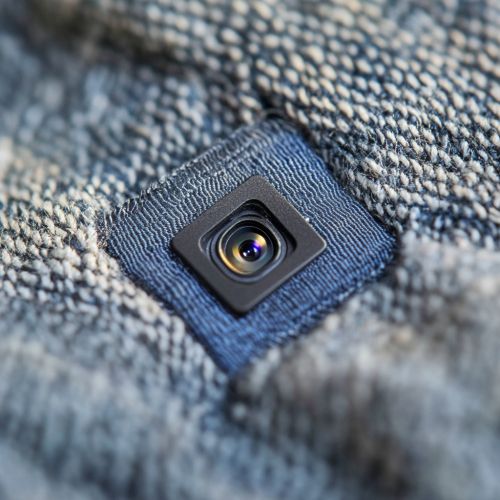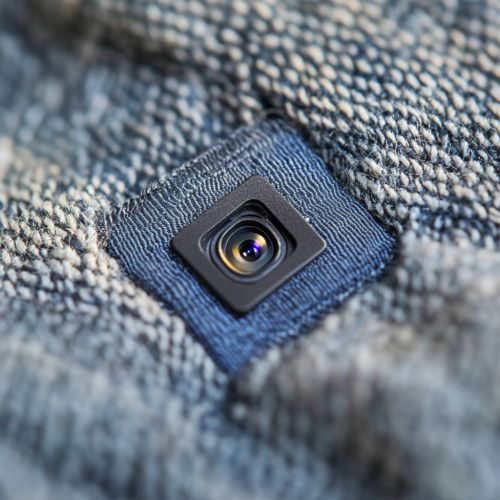Nanotechnology and Privacy: Difference between revisions
(Created page with "== Introduction == Nanotechnology, the manipulation of matter on an atomic or molecular scale, has revolutionized various fields such as medicine, electronics, and materials science. However, its implications for privacy are profound and multifaceted. This article delves into the intersection of nanotechnology and privacy, exploring the potential benefits, risks, and ethical considerations. == Overview of Nanotechnology == Nanotechnology involves the design, production,...") |
No edit summary |
||
| Line 8: | Line 8: | ||
Nanotechnology has significantly enhanced surveillance capabilities. [[Nanosensors]] and [[nano-cameras]] can be embedded in various environments, providing unprecedented levels of monitoring. These devices can be as small as a few nanometers, making them virtually undetectable. They can be integrated into clothing, accessories, and even human bodies, raising significant privacy concerns. | Nanotechnology has significantly enhanced surveillance capabilities. [[Nanosensors]] and [[nano-cameras]] can be embedded in various environments, providing unprecedented levels of monitoring. These devices can be as small as a few nanometers, making them virtually undetectable. They can be integrated into clothing, accessories, and even human bodies, raising significant privacy concerns. | ||
[[Image:Detail-97673.jpg|thumb|center|Close-up image of a nano-camera embedded in a piece of fabric.|class=only_on_mobile]] | |||
[[Image:Detail-97674.jpg|thumb|center|Close-up image of a nano-camera embedded in a piece of fabric.|class=only_on_desktop]] | |||
== Data Collection and Storage == | == Data Collection and Storage == | ||
Latest revision as of 04:34, 19 August 2024
Introduction
Nanotechnology, the manipulation of matter on an atomic or molecular scale, has revolutionized various fields such as medicine, electronics, and materials science. However, its implications for privacy are profound and multifaceted. This article delves into the intersection of nanotechnology and privacy, exploring the potential benefits, risks, and ethical considerations.
Overview of Nanotechnology
Nanotechnology involves the design, production, and application of structures, devices, and systems by controlling shape and size at the nanometer scale. This technology has enabled the creation of nanomaterials, nanodevices, and nanosystems that exhibit unique properties and functionalities.
Applications of Nanotechnology in Surveillance
Nanotechnology has significantly enhanced surveillance capabilities. Nanosensors and nano-cameras can be embedded in various environments, providing unprecedented levels of monitoring. These devices can be as small as a few nanometers, making them virtually undetectable. They can be integrated into clothing, accessories, and even human bodies, raising significant privacy concerns.


Data Collection and Storage
Nanotechnology facilitates the collection and storage of vast amounts of data. Nanomemory devices can store large datasets in extremely small volumes, enabling more efficient data storage solutions. However, the ease of data collection and storage also poses risks to individual privacy, as sensitive information can be gathered and stored without consent.
Privacy Risks and Ethical Concerns
The integration of nanotechnology into everyday life raises several privacy risks and ethical concerns. These include:
Informed Consent
The use of nanotechnology in surveillance and data collection often occurs without the knowledge or consent of individuals. This lack of transparency can lead to violations of privacy and autonomy.
Data Security
The vast amounts of data collected through nanotechnology are susceptible to breaches and unauthorized access. Ensuring the security of this data is crucial to protecting individual privacy.
Abuse of Power
The potential for abuse of nanotechnology by governments, corporations, and other entities is significant. The ability to monitor and collect data on individuals can lead to misuse of power and infringement on civil liberties.
Regulatory Frameworks
To address the privacy concerns associated with nanotechnology, various regulatory frameworks have been proposed and implemented. These frameworks aim to balance the benefits of nanotechnology with the need to protect individual privacy.
International Regulations
International bodies such as the International Organization for Standardization (ISO) and the World Health Organization (WHO) have developed guidelines and standards for the ethical use of nanotechnology. These regulations emphasize the importance of transparency, informed consent, and data security.
National Regulations
Different countries have implemented their own regulations to address the privacy implications of nanotechnology. For example, the European Union's General Data Protection Regulation (GDPR) includes provisions that apply to the use of nanotechnology in data collection and processing.
Future Directions
The future of nanotechnology and privacy is likely to involve continued advancements in technology and evolving regulatory frameworks. Researchers and policymakers must work together to ensure that the benefits of nanotechnology are realized while protecting individual privacy.
Technological Innovations
Ongoing research in nanotechnology aims to develop more secure and privacy-preserving solutions. For example, quantum cryptography and blockchain technology are being explored as potential methods to enhance data security in nanotechnology applications.
Ethical Considerations
Ethical considerations will continue to play a crucial role in the development and implementation of nanotechnology. Engaging with diverse stakeholders, including ethicists, technologists, and the public, is essential to address the complex privacy issues associated with nanotechnology.
Conclusion
Nanotechnology offers immense potential for innovation and progress, but it also poses significant challenges to privacy. By understanding the risks and ethical considerations, and by developing robust regulatory frameworks, society can harness the benefits of nanotechnology while safeguarding individual privacy.
